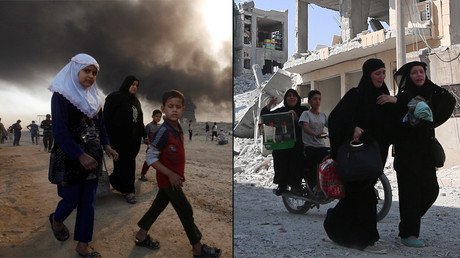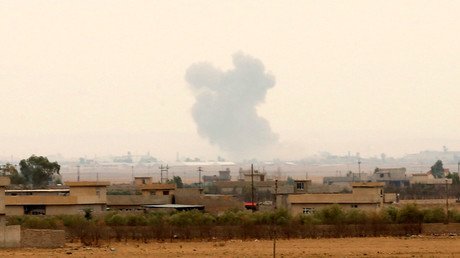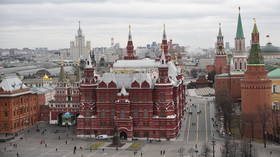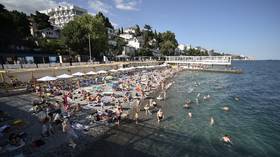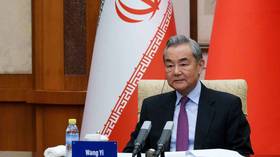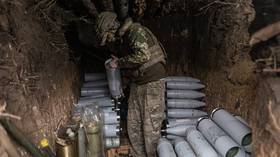German magazine hits back at ‘propaganda’ accusations… by using ISIS-made video
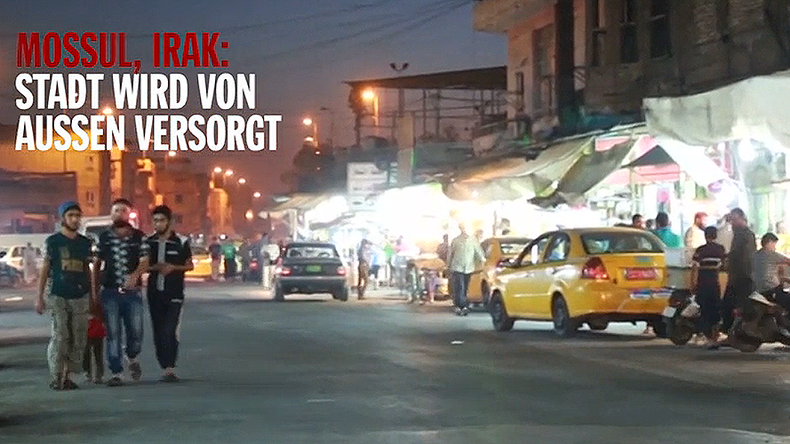
German magazine Der Spiegel used an Islamic State propaganda video from Mosul in Iraq to stress the difference between the US-backed operation there and the Syrian government’s siege in Aleppo. The outlet’s readers had earlier slammed it for double standards.
In a video statement, Spiegel’s political editor, Christoph Sydow, tried to defend the editorial policy on the coverage of the anti-Islamic State operation in Mosul and the one that is underway in eastern Aleppo, which is held by militants and terrorists. The response followed numerous critical comments from the outlet’s readers and people on social media, saying the magazine was biased in its reporting.
“Today in the propagandaspiegel: no danger for civilians! While [east] Aleppo is being 'destroyed' by the evil Russians and Assad, Mosul is 'liberated' by the brave Iraqis, Turks and Americans …who would have thought that," one of the messages said.
“It is interesting that in Mosul good bombs are apparently hitting bad terrorists, in Aleppo bad bombs are being dropped on good rebels,” another comment said.
Reacting to the comments, Sydow tried to explain the differences between Mosul and east Aleppo by using several examples, with the humanitarian situation being one of the key points. He claimed that east Aleppo is “isolated” from the rest of the world, with people also “starving” and lacking water.
“In Mosul the situation is different at the moment. The city can be supplied, people have water, people have electricity, people have enough to eat. No one should starve so far,” Sydow said. His words are accompanied by a video that shows calm streets and people having a barbecue and drinking tea.
BILDblog soon pointed out that the video used is a propaganda clip by Islamic State (IS, formerly ISIS/ISIL) militants released over a week earlier. The footage contains the logo of the Al-Amaq news agency, considered to be an official mouthpiece for IS-propaganda.
On its official Twitter feed Der Spiegel acknowledged its mistake, calling it an “oversight.”
“It was an oversight that we did not mark the source of the material. It was corrected,” the message read.
@BILDblog 1: Es war ein Versehen, dass wir die Quelle des Materials nicht gekennzeichnet haben. Es ist korrigiert. https://t.co/PjqPevInT1
— SPIEGEL ONLINE (@SPIEGELONLINE) October 26, 2016
The outlet did not however backtrack on its statement over the humanitarian situation in Mosul, adding in a separate comment that it receives the information from “contacts on the ground" and not from IS-made clips. “They [contacts] cannot film without risking their lives,” Der Spiegel tweeted.
The respective Al-Amaq video was also used in a recent report by German broadcaster ARD, yet with a different angle, contradicting that of Der Spiegel. In its report, the ARD says that while the IS-made video tries to portray satisfied people, the reality they are facing is far worse.
“In fact, there is a lack of water, food, medicines and electricity. This is what people from Mosul tell their relatives in secret telephone calls," the ARD report stated.
The operation to retake Mosul from IS, which considers the city its Iraqi capital, began on October 17. Some 30,000 government forces and local militias are taking part in the fighting, backed by the US-led international coalition.
Just a day later the UN warned of a looming humanitarian catastrophe that could be caused by the military action. White House spokesperson Josh Earnest, however, said that any idea of delaying the operation because of “concern about the humanitarian situation in Mosul doesn't make sense.”
Lt. Gen. Sergey Rudskoy, chief of the Russian General Staff Main Operational Directorate, announced on October 25 that dozens of civilians had died in a US-led bombardment in the area of Mosul.
“On October 24, the US Air Force’s tactical aircraft launched missile and bomb strikes on a school building in the village of Tall Kayf, 14km north of Mosul at 3:35am. As a result of the strike, there are dead and wounded,” the official said.
The Pentagon has promised to investigate any information offered by the Russian General Staff.
